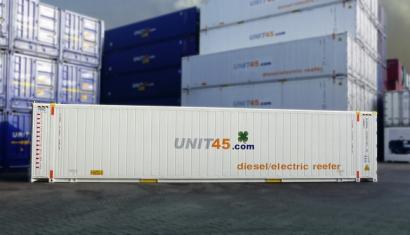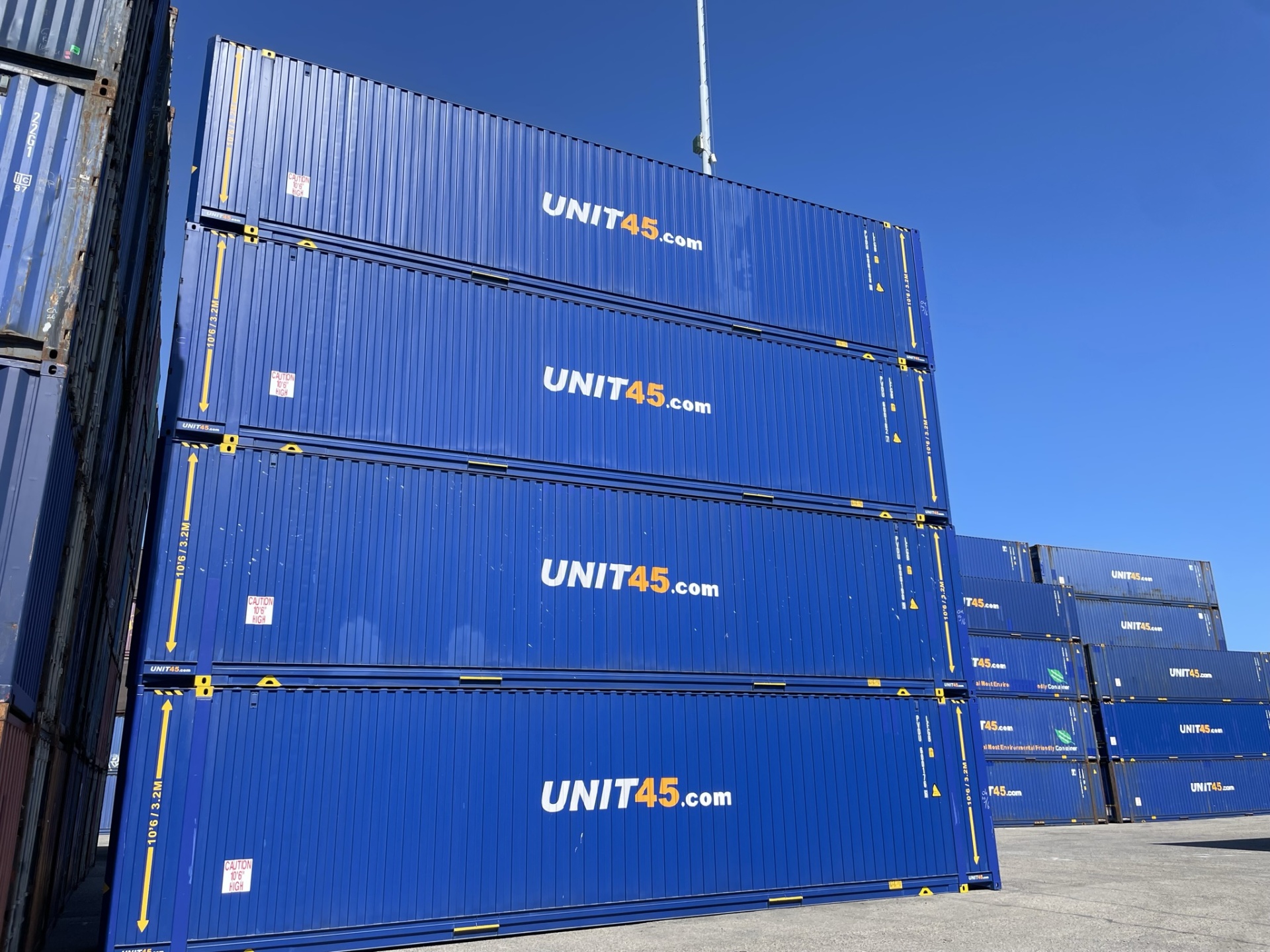
News from the Intermodal exhibition in Hamburg (2 - 4 December 2008)
The Dutch 45ft container specialist
According to
“Although the agreement on the International Carriage of Perishable Foodstuffs and on the special equipment to be used for such carriage, known as the ATP agreement, was drawn up by the Inland Transport Committee of the United Nations Economic Committee for Europe in 1970-71, so far no-one has offered a container design that is capable of meeting ATP standards. Consequently, this market has been dominated by road trailers.
“Now that more and more reefer containers are being moved by rail over long distances, for example from Northern Europe to Italy, our customers have been pushing us to solve the difficult technical problems associated with meeting the ATP requirements and, in particular, to develop a container that could achieve the ATP’s
It should be noted that fresh fruit and vegetables do not require the transport equipment to be ATP certified. Similarly, maritime containers, when transporting perishable products where the door-to-door movement includes a sea voyage of over 150km, do not need ATP certification.
Mr. Koolen believes that many transport operators will now switch large portions of their business from road to rail and sea:
“There is considerable pressure on the transport industry to find green logistics solutions. Their customers, producers of foodstuffs and the major distributors and retailers, are all eager to be seen taking steps that reduce their respective carbon footprints. The end customers, the general public, expect this of them.
“The practicality of moving reefer containers by rail between the Benelux and Italy is already proven;
The
The Agreement Transports Périssables, commonly known simply as the ATP agreement, concerning the International Carriage of Perishable Foodstuffs and on the special equipment to be used for such carriage was drawn up by the Inland Transport Committee of the United Nations Economic Committee for Europe in 1970-71.
For the European transport operator moving cargo on an international basis, an ATP certificate is nearly always essential. It is illegal to transport perishable foodstuffs across an international boundary between countries that are signatories to the ATP agreement unless the vehicle has an ATP certificate. It should be noted that many signatory countries have also adopted ATP for domestic movements.
Countries that are signatories to ATP include not only most of the EU member states but also Russia and many FSU nations, and even the USA. Operators whose trailers (or containers) do not have ATP certification can find their vehicles turned back at borders and/or be fined substantial amounts.
For detailed information on ATP,

